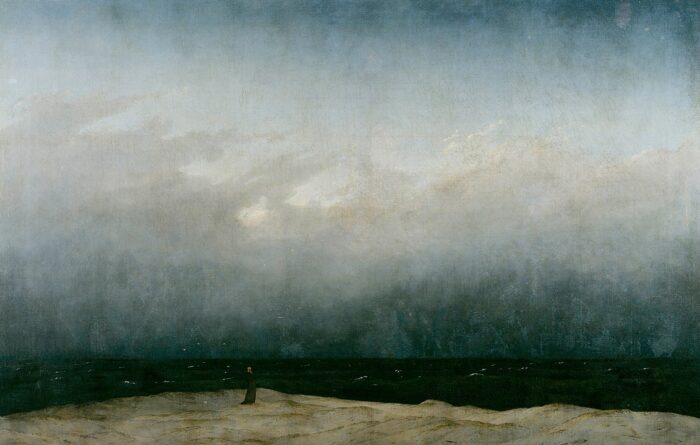We are supposed to be social animals. Yet, I find happiness in complete solitude.
On Christmas Day, I chose to stay in the city alone, unlike most people I know who went off to dine with their relatives in baroque homes or fancy restaurants. I woke up, exercised, dressed, and then set out in search of an open coffee shop—”coffee hunting,” as I whimsically called it.
The world was beautiful; I hadn’t seen it this way in a long time. The streets were empty, dotted with only a few scattered individuals, like confused ants trying to find their way home. The sun shone shyly, as if it didn’t want to disturb the tranquility of the scene. Yet high above the rooftops, it created a sea of gold, bathing treetops, balconies, parked cars, and streetlights in a soft, indirect light.
That’s when the feeling struck me—not a wild, ecstatic happiness, but a restrained, cozy kind of joy. It seemed to rise from the depths of my heart—if not my soul. Inevitably, I wondered if this wasn’t how I ought to feel every day—every day I chose to embrace happiness.
Not for a single second did I envy my friends or acquaintances. I was glad that each of them could make a decision, to know exactly what the holiday represented emotionally, just as I had come to understand what it meant to me: nothing. At best, it was a test—the challenge of staying true to myself, to my identity, without bending under the weight of others’ expectations. And it felt right, as if the breathtaking beauty that greeted me that morning and stayed with me until nightfall confirmed that I wasn’t wrong in my choices.
Everything around me seemed to agree with me, as if offering a silent smile of approval. At the coffee shop, the woman who served me was exceptionally kind. The sparse “ants” didn’t overwhelm me. On the contrary, encountering individuals who, like me, shunned tradition made me feel understood, even though these strangers didn’t know who I was or what I was doing there. The soft light was kind to my eyes, weary from the chaos of recent days, and the cold—neither too sharp nor too dull—revived my spirits.
Christmas Day was also the release day of Nosferatu. With no plans on my calendar and hours stretching before me like a soothing balm, I decided to visit the nearest cinema to buy a ticket. I aimed to be the first to take a seat in what I expected to be an entirely empty theater. However, as I crossed the velvety threshold (for it was one of those cinemas that still retained the natural charm of its origins), I encountered a crowd—avid cinephiles or solitary wanderers like me who couldn’t resist the vampire’s call.
There it was: the ant colony—my ant colony. It was fleeting, almost secret, requiring no obligations, no responsibilities, no eternal pacts.
For two hours, happiness solidified into a sense of belonging. I was in the right place, with the right people, even though I’d never come to know a single one of them. I enjoyed the film, had a good time, and used those hours in the cinema to build something meaningful for myself: the active memory of a significant day. A day when I wasn’t swept away by circumstance but chose to live deliberately.
It was a lonely day as much as it was a happy and joyous day. That makes me question what happiness means for me—or if this disconnected, individualized reality is what I should pursue. With a burden like this on my shoulders, can I really expect to find anything else? Should I try to differentiate calm and peace from happiness? Or should I remain satisfied with this mixture of emotions: warmth, silence, fondness, passion, tenderness, isolation, love, and respect?
In any case, I plan to reach a conclusion once December ends, as I currently don’t have any more free time to think about it. I need to prepare the materials for the next semester. Moreover, on Tuesday, I will meet with my friends to say goodbye to the year together. I’m excited. I think that perhaps they will help me remember a new and different kind of happiness.
Says Pizarnik in her letters to Léon Ostrov:
“Ha llovido hermosamente. Leí varios libros, escribí varios poemas, no hablé con nadie y descubrí que me sentía “casi feliz”. Exceptuando las veces que me acordaba: estás en París; tienes que salir, tienes que ver. Entonces la angustia. Mañana; juro que mañana saldré.”
